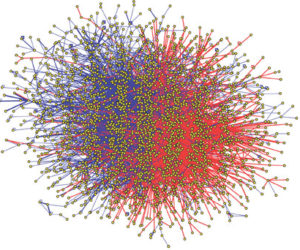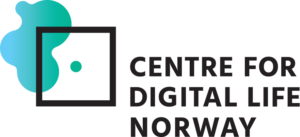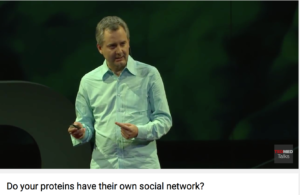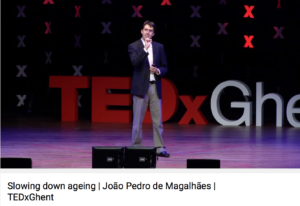Dates: 23-25 August 2017
Location: Grand Hotel Terminus, Bergen
Program and abstracts: Final program, abstracts and practical information may be downloaded from [ddownload id=”2166″ text=”here” style=”link”].
Organisers:
Joint between NORBIS, CCBIO (Centre for Cancer Biomarkers) and Centre for Digital Life Norway;
Konstantina Dimitrakopoulo, Christine Stansberg, Inge Jonassen, Eileen Marie Hannah, Lars Akslen, Elisabeth Wik, Kjell Petersen
[one_half]
[/one_half]
[one_half]
[/one_half]
Lectures:
Note: Links to recorded videos and/or slides from the individual presentations will be added to each entry below as soon as the material is ready.
Konstantina Dimitrakopoulou (Computational Biology Unit and CCBIO, University of Bergen):
“Introduction to biological networks”
Christos Ouzounis (CERTH, Centre for Research and Technology Hellas, Thessaloniki, Greece):
“Developing computational biology: From comparative genomics to systems biomedicine”
Eileen Marie Hannah (Computational Biology Unit and DLN, University of Bergen):
“Introduction to Cytoscape” [ddownload id=”2315″ text=”Presentation” style=”link”]
João Pedro de Magalhães (University of Liverpool, UK):
“Bioinformatics, systems biology and ageing: Navigating the new oceans of data to discover the Fountain of Youth”
Albert-László Barabási (Center of Complex Networks Research, Northeastern University and Division
of Network Medicine, Harvard University, Boston, US):
“Network Medicine: From Cellular Networks to the Human Diseasome”
Benno Schwikowski (Institut Pasteur, Paris, France):
“LEAN discovery of hot spots in networks”
Leonidas Alexopoulos (National Technical University of Athens, Greece):
“Pathway-based approaches for early drug and biomarker discovery. Research and Industrial applications in osteoarthritis, liver cancer, non-alcoholic fat liver disease, multiple sclerosis, melanoma, chronic kidney disease, and liver toxicity”
Eivind Almaas (Norwegian University of Science and Technology, Trondheim, Norway):
“Differential co-expression network analysis: from pathways to disease”
Alfonso Valencia (BSC-Barcelona Supercomputing Center, Spain):
“Networks based approaches for the study of epigenomics”
Ruth Barshir (Ben-Gurion University of the Negev, Beer-Sheva, Israel):
“Using network approaches towards understanding tissue-specificity of hereditary diseases”
Laura Furlong (Universitat Pompeu Fabra, Barcelona, Spain):
“DisGeNET discovery platform 5.0: Illuminating the study of human diseases”
Marc Vaudel (University of Bergen, Norway):
“Networks as a roadmap for clinical data”
Hands-on sessions:
Pablo Porras Millan (European Molecular Biology Laboratory (EMBL) – European Bioinformatics Institute (EBI), UK):
“Protein interaction data (databases and analysis) (Cytoscape)” [ddownload id=”2287″ text=”Presentation” style=”link”], Hands-on material
Aristidis Vrahatis (University of Patras, Greece):
“Integrative pathway analysis (R)” [ddownload id=”2288″ text=”Presentation” style=”link”], [ddownload id=”2289″ text=”R-examples” style=”link”]
Required software:
Participation at the hands-on sessions requires access to a laptop and installation of software prior to the workshop. Please make sure you follow our instructions, which can be found here.
Popular science lecture with Professor Barabási!
In association with this workshop, Professor Albert-László Barabási will give a Horizon lecture entitled “Network Science – From structure to control” at the UiB Natural Sciences building on Friday 25 August at 14.30. The regular workshop program will end by 14.00, to allow all participants to move to the new venue. The Horizon lecture series targets staff and students of the UiB Faculty of Mathematics and Natural Sciences, and all others that are interested in major scientific questions and challenges across disciplinary borders, and is open for everyone. Read more about Barabási’s Horizon lecture here.
Description
Network science meets omics data.
Many systems are highly complex and behind their collective behavior there is a network of interactions among the system’s components. Network science can rationalize diverse complex systems, for example, the cellular network depicts the interactions between genes, proteins, and metabolites, the neural network describes the connections between neurons, the social network captures the family, friendship and professional relations formulating the society and the communication network depicts communication devices interacting through wired internet connections or wireless links.
The functioning of living organisms is controlled by highly complex networks of interacting molecular components like signal transduction, protein-protein interaction, metabolic and gene regulatory networks. Disease analysis has recently undergone a paradigm shift due to the unprecedented amount of multiple omics data produced and the introduction of network science which moved understanding of disease etiology and progression from the level of single molecules to perturbations upon the complex intracellular network. Moreover, systems-level approaches integrate omics data from different sources as an effective means to deal with the high noise in each individual source and provide a more realistic cellular landscape. Integromics approaches have been shown to improve our comprehension of biological systems and enable more robust disease classification and discovery of biomarkers and drug targets.
In this workshop, we will introduce participants to graph theory, provide an overview of different types of biological networks and present approaches for integrating omics data. Hands-on tutorials on tools used in network-based approaches will also be provided.
Sneak peaks! Watch Barabasi talking about proteins and social networks here:
and de Magalhães talking about ageing here:
Who this workshop is for
This workshop is intended for all students/researchers with an interest in bioinformatics and systems biology. Tutorials require installation of Cytoscape software and basic R scripting skills.
Recommended reading:
http://barabasi.com/networksciencebook/
https://www.coursera.org/learn/network-biology
NORBIS will cover travel expenses for members attending this workshop. Read more about the details and obligations here.
Illustration: doi:10.1038/nature04209




